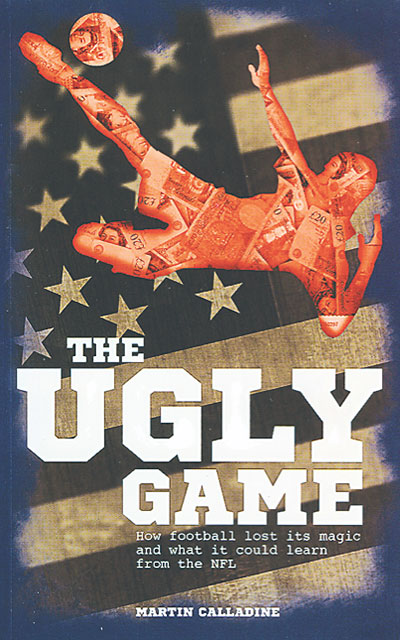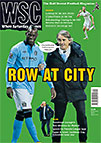Search: 'Peter Swan'
Stories
It’s not just pros who have to make plans for retirement. As Neil Wills explained, hanging up your boots can have a big effect on an amateur
 How football lost its magic and what it could learn from the NFL
How football lost its magic and what it could learn from the NFL
by Martin Calladine
Pitch £12.99
Reviewed by Roger Titford
From WSC 341 July 2015
Martin Calladine is a disillusioned football fan who is going over to the ugly game that is American football. On his way out he offers observations on the differences between the two sports in 20 loosely connected short essays. He is an intelligent consumer of the sports, rather than a business insider or supporter activist, and brings some interesting perspectives to bear on the current failings of football. But The Ugly Game is not even a wish list, let alone a manifesto for change. There is no rigour in the comparisons; he uses the Premier League, English football and football in general interchangeably. The hugely differing structures and contexts that surround the NFL and Premier League are ignored. Calladine has a desirable destination in mind but no means of direction towards it.
The value of The Ugly Game is the fuel he provides for a more actively minded reformer. In particular there is a helpful analysis of what makes that curious billionaires’ socialist collective called the NFL tick. In entertaining fashion he unpicks the virtues of the salary cap, the draft transfer system, regulated ownership and the Rooney rule that enhances the chances of ethnic minority coaches. All of this helps to create a far more level playing field in the NFL than we see in the Premier League.
The concept of fairness is at the heart of Calladine’s thinking and he illustrates the lack of it and the need for it in apt ways. There is no prize money for winning the Superbowl but the cumulative effect of decades of prize money in the Champions League has distanced a few clubs from all the rest. Kids in the park having a pick-up game would never put all the best players on one side.
But there is more than one kind of fairness. There is no room in the NFL’s cartel of 32 clubs for a fast-rising Swansea, Hull City or Bournemouth. England and Wales support and give access to over 100 professional clubs for a population of 50 million, a sixth of the size of the US. While Calladine looks forward to more American football at Wembley he makes no reference to the, perhaps larger, trade going the other way – the strong and recent growth of soccer in the US.
There are strong chapters on the misuse of statistics and the weak analysis proffered by Alan Hansen and Alan Shearer compared with what US audiences receive and he has the occasional arresting phrase, such as “identikit tattooed greyhounds” to describe the modern footballer. Yet despite taking this high ground the whole work is disfigured by a peppering of snide asides about Pelé’s potency, Peter Beardsley’s looks, Titus Bramble’s brains and so on. Random photos with lame captions that drift like tumbleweed undermine what is an insightful work on fairness and power. One expects there will be more in this canon of “modern football is rubbish” from those freshly deserting the game. Indeed this is not the only football book with this title currently on sale.
 Calls for a trial of new safe standing technology in the top two tiers are slowly starting to gather political support, Tom Hocking writes
Calls for a trial of new safe standing technology in the top two tiers are slowly starting to gather political support, Tom Hocking writes
The Safe Standing Roadshow has spent the last year showing fans and officials around the country how standing could work in the England’s top two divisions. On December 11, 2012 it arrived in Parliament. The event, held in conjunction with the Football Supporters’ Federation (FSF) and sponsored by Roger Godsiff MP, took the case for safe standing to the Attlee Suite of Portcullis House, across the road from Big Ben.
 Dear WSC
Dear WSC
The article on the FA Cup’s longest tie (Draw to a close, WSC 298) reminded me of what I believe is still officially the longest single match between two English sides – the second leg of a Division Three cup tie between Stockport County and Doncaster Rovers on March 30, 1946. After extra time, the score stood at 2-2 – which was also the score following the first leg. Having checked with the local authorities, the referee let the game carry on until one team scored, the original Golden Goal. After 203 minutes and with darkness setting in, the match was finally brought to an end. The story goes that fans left the match to go home for their tea and returned later to carry on watching. The replay at Doncaster was won by the home team 4-0. This might not be quite as impressive as the longest football match ever, which I believe currently standards at 57 hours. This epic encounter between Leeds Badgers and Warwickshire Wolves in 2010 was played to raise money for charity.
Alan Bredee, Enfield